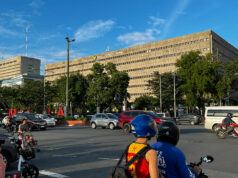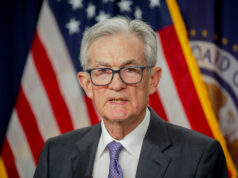Spending challenges flagged amid GDP growth
STANDARD CHARTERED Bank sees “steady” Philippine economic growth in 2018 on the back of an infrastructure development push, even as it expects state spending on this item to fall short of target due to local bottlenecks.
And with inflation picking up, the bank now expects the Bangko Sentral ng Pilipinas (BSP) to hike policy rates twice by 25 basis points (bps) each within the year after keeping monetary policy steady since the last increase in September 2014.
The bank’s report was prepared in December, before the government reported fourth-quarter and full-year 2017 gross domestic product (GDP) data last Tuesday.
“We forecast steady GDP growth of 6.7% in both 2017 and 2018,” Standard Chartered said in its Global Focus — Economic Outlook 2018 report, falling short of the 7-8% growth target the government has adopted for this year until 2022, when President Rodrigo R. Duterte ends his six-year term.
Chidu Narayanan, economist at Standard Chartered, told reporters in a briefing in Makati City: “We expect a lot more of planned infrastructure coming on board in 2018, which should the biggest driver of growth in the year.”
The government plans to hike its spending on infrastructure to P1.84 trillion, or 7.3% of GDP, in 2022 from P1.098 trillion or 6.3% this year as part of an P8.13-trillion program until Mr. Duterte finishes his term.
At the same time, Standard Chartered expects infrastructure investment to “fall short of the government target due to operational issues at the district level and bureaucratic red tape.”
On Tuesday, the Philippine Statistics Authority reported that the country’s GDP grew by 6.7% in 2017, matching market expectations and falling within the government’s 6.5-7.5% target, though slower than 2016’s 6.9%.
Standard Chartered also expects the country’s inflation to edge up further this year.
“We raised our forecasts and now expect average inflation of 3.5% in 2018 (previous forecast: 3.2%)” from 2017’s actual 3.2%, the report read.
“Higher infrastructure investment and government tax reform… should add 0.3-0.5 [percentage points] to headline inflation,” the report added, as it saw headline inflation peaking at 3.8% “in June-July.”
“We expect the central bank to look through inflationary pressure arising from tax reform, but to view rapid credit growth as a source of concern,” Standard Chartered said.
With this backdrop, the bank now expects “moderate tightening” of monetary policy, consisting of two interest rate increases by the BSP — each by 25 bps — by the third quarter, taking the policy rate to 3.5%. The BSP’s Monetary Board is scheduled to hold its first of eight planned policy reviews this year on Feb. 8. — Karl Angelo N. Vidal



